
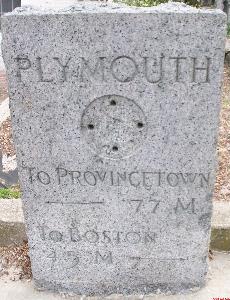

Congregationalism
I have copied various standard materials and put them together with my own thoughts so that we might have a simplified look at the development of Congregationalism and the Statements of Faith we profess. These are only the very, very basics – please remember that there are so many groups and documents out there with VERY similar names – but that stand for very different things. Also that there are more ‘branches’ of Congregationalism out there then are mentioned here. If you have questions, please just ask. Looking things up further that are linked here may also help. ~~ Pastor Lin
In Great Britain
The movement to which the name Congregationalism came to be applied began in the 16th and 17th century in England in a revolt against the Established Church. Robert Browne published in 1582 the first theoretical exposition of Congregational principles and expressed the position of some of those separatists . Churches established on such lines were started very early in the 17th century in Gainsborough and Scrooby, but government opposition drove them into exile in Holland.
Not until the Protectorate did the Congregationalists make much progress. About that time the name Independents was first introduced, a term long common in Great Britain (it is still used in Wales) but seldom used in America. In 1658, when the Savoy Synod met in London, over 100 churches were represented. With the Restoration came repression for the Independents, partly relieved by the Toleration Act of 1689.
A marked tendency among English Congregationalists in the 19th century was toward combination in larger fellowship. Churches of this denomination formed a union in Scotland in 1812 and in Ireland in 1829; in 1831 the Congregational Union of England and Wales was established. The Congregational Union and the Evangelical Union were united in 1896. Membership in Congregational churches in Great Britain has declined in the 20th century Congregationalists have been active in ecumenical activities, and in 1972 most British Congregationalists and Presbyterians merged to form the United Reform Church.
In America
Congregationalism was carried to America in 1620 by the Pilgrims, who were members of John Robinson’s congregation in Holland, originally of Scrooby, England.
In America, Congregationalism reached its greatest public influence and largest membership. In New England numerous communities were established based on Congregational-type religious principles. In 1648 in the Cambridge Platform a summary of principles of church government and discipline was drawn up. Congregationalists took a leading part in the Great Awakening that, in New England, was started in 1734 by the preaching of Jonathan Edwards . As the country expanded, Congregational churches were established in the newly opened frontier regions.
In 1810 the American Board of Commissioners for Foreign Missions began its work; in 1826 the American Home Missionary Society was formed. These were followed in 1846 by the American Missionary Association, primarily devoted to missionary work among African Americans and Native Americans. The early part of the 19th century brought the Unitarian secession, when over 100 churches left the main Congregational body.
Congregational churches began to meet in local and then in statewide conferences, out of which developed (1871) the National Council of the Congregational Churches of the United States. But each local church remained free to make its own declaration of faith and free to decide its own form of worship; in the conduct of the local church each member was granted an equal voice. The principal assistants of the pastor are the deacons.
The trend toward broader fellowship and larger cooperation was notably indicated in the merging in 1931 of the National Council of the Congregational Churches of the United States and the General Convention of the Christian Church (see Christian Church (Disciples of Christ) ) to form the General Council of the Congregational and Christian Churches of the United States. A move to unite the Congregational Christian Churches with the Evangelical and Reformed Church was approved by the councils of the two denominations in 1957, forming the United Church of Christ . The National Association of Congregational Christian Churches was formed in 1955 by churches that chose not to join in the merger; it had about 70,000 members in 1997.
“Christian Connection/Connexion” or “Christian Church”
The Christian Connection or Christian Connexion was a Christian movement which began in several places in the United States during the late 18th and early 19th centuries and were secessions from three different religious denomination. The Christian Church merged with the Congregational Churches in 1931 to form the Congregational Christian Churches.
Congregational Christian Churches
The Congregational Christian Churches were a Protestant Christian denomination that operated in the U.S. from 1931 through 1957. On the latter date, most of its churches joined the Evangelical and Reformed Church in a merger to become the United Church of Christ. During the fore mentioned period, its churches were organized nationally into a General Council, with Parallel state conferences, sectional associations, and missionary instrumentalities.
The body came into being in Seattle, Washington in 1931 by the merger of two American bodies that practiced congregational church governance, the General Council of Congregational Churches and the General Convention of the Christian Church. Initially using the word “and” between the words “Congregational” and “Christian”, the new denomination decided to combine the predecessor churches’ identities into one nationally, while its constituent churches remained free to either retain their original names or adopt the new usage.
National Association Of Congregational Christian Churches
The NACCC has cordial relationships with a number of state and regional Congregational associations. These, however, are independent of the National Association, and the NA is likewise independent of them. Many Congregational Christian Churches choose to belong to both the NA and a state or regional association, but they are not required to belong to either.
The National Association itself is governed by Articles of Association and Bylaws designed to allow local congregations to consult and advise together as churches upon matters of common concern to them, both temporal and spiritual, without infringing on their s of self-government. Churches which are members of the NA pay no dues or assessments. Section VI of the Association's Bylaws states: "The expenses of the Association shall be met from voluntary contributions solicited from the Congregational Christian Churches . . . and also from . . . special gifts and legacies."
Once each year, normally in June, representatives of NA member churches gather for our Annual Meeting. It lasts four days and is held in a different city each year. Those who attend experience the joy of fellowship, take part in valuable seminars, hear dynamic and inspiring speakers, and make the major decisions of the Association during the business sessions.
Between Annual Meetings, the activities of the NA are conducted and supported by its Executive Committee and a number of other committees, divisions, and commissions, as well as a paid national office staff of just 9 people.
The Association's national office is in Oak Creek, Wisconsin, a suburb of Milwaukee. The staff includes professional and clerical workers. All of whom, from the Executive Secretary on down, are employees of the NACCC. They have no spiritual or temporal authority over member churches or individuals.
In sum, it might well be said that the National Association of Congregational Christian Churches is a body purposely designed to have no power. It is designed this way so that local churches may enjoy the benefits of national fellowship without the slightest compromise of their freedom.
The Cambridge Platform
The Cambridge Platform was a doctrinal statement for the Congregational churches in Colonial America . It was drawn up in August, 1648 by a synod of ministers from Massachusetts and Connecticut , which met pursuant to a request of the Massachusetts General Court . The New England authorities desired a formal statement of polity and a confession of faith because of the current Presbyterian ascendancy in England and the activities of local Presbyterians such as Dr. Robert Child . The declaration endorsed the Westminster Confession and for ecclesiastical organization upheld the existing Congregational practice. The Cambridge Platform remained the standard formulation in Massachusetts through the 18th century and in Connecticut until the Saybrook Platform of 1708 .
The Saybrook Platform
Saybrook Platform, a revision of the ecclesiastical polity of the colony of Connecticut, drawn up by a synod meeting at the call of the legislature in Saybrook, 9 September 1708. Those in conservative circles, fearing that the Cambridge Platform (1648) did not furnish adequate authority for keeping all churches in line, reorganized the church into county associations ruled by a council of ministers and lay delegates empowered to discipline erring congregations and to supervise the choice of new pastors; county associations then sent delegates to a colony-wide regulatory assembly. Governmental support of the platform in Connecticut effectively transformed the eighteenth-century polity into a centrally administered unit, making the church practically a form of Presbyterianism.
Declaration of Faith of the National Council of Congregational Churches, held at Boston, Mass., June 14–24, 1865.
[This Declaration was adopted at Plymouth, Massachusetts, on the spot where the first meeting-house of the 'Pilgrim Fathers' stood. The text is taken from the Debates and Proceedings of the National Council of Congregational Churches (Boston, 1866), pp. 401–403, as compared with the Congregational Manual on Ecclesiastical Polity, published by the Congregational Board, Boston, 1872, pp. 76–80.]
Standing by the rock where the Pilgrims set foot upon these shores, upon the spot where they worshiped God, and among the graves of the early generations, we, Elders and Messengers of the Congregational churches of the United States in National Council assembled—like them acknowledging no rule of faith but the Word of God—do now declare our adherence to the faith and order of the apostolic and primitive churches held by our fathers, and substantially as embodied in the confessions and platforms which our Synods of 1648 and 1680 set forth or reaffirmed. We declare that the experience of the nearly two and a half centuries which have elapsed since the memorable day when our sires founded here a Christian Commonwealth, with all the development of new forms of error since their times, has only deepened our confidence in the faith and polity of those fathers. We bless God for the inheritance of these doctrines. We invoke the help of the Divine Redeemer, that, through the presence of the promised Comforter, he will enable us to transmit them in purity to our children.
In the times that are before us as a nation, times at once of duty and of danger, we rest all our hope in the gospel of the Son of God. It was the grand peculiarity of our Puritan fathers that they held this gospel, not merely as the ground of their personal salvation, but as declaring the worth of man by the incarnation and sacrifice of the Son of God, and therefore applied its principles to elevate society, to regulate education, to civilize humanity, to purify law, to reform the Church and the State, and to assert and defend liberty; in short, to mold and redeem, by its all-transforming energy, every thing that belongs to man in his individual and social relations.
It was the faith of our fathers that gave us this free land in which we dwell. It is by this faith only that we can transmit to our children a free and happy, because a Christian, commonwealth.
We hold it to be a distinctive excellence of our Congregational system that it exalts that which is more above that which is less important, and by the simplicity of its organization facilitates, in communities where the population is limited, the union of all true believers in one Christian church, and that the division of such communities into several weak and jealous societies, holding the same common faith, is a sin against the unity of the body of Christ, and at once the shame and scandal of Christendom.
We rejoice that, through the influence of our free system of apostolic order, we can hold fellowship with all who acknowledge Christ, and act efficiently in the work of restoring unity to the divided Church, and of bringing back harmony and peace among all who love our Lord Jesus Christ in sincerity.'
Thus recognizing the unity of the Church of Christ in all the world, and knowing that we are but one branch of Christ's people, while adhering to our peculiar faith and order, we extend to all believers the hand of Christian fellowship upon the basis of those great fundamental truths in which all Christians should agree.
With them we confess our faith in God, the Father, the Son, and the Holy Ghost [the only living and true God] in Jesus Christ, the in Jesus Christ, the incarnate Word, who is exalted to be our Redeemer and King; and in the Holy Comforter, who is present in the Church to regenerate and sanctify the soul.
With the whole Church, we confess the common sinfulness and ruin of our race, and acknowledge that it is only through the work accomplished by the life and expiatory death of Christ that believers in him are justified before God, receive the remission of sins, and through the presence and grace of the Holy Comforter are delivered from the power of sin and perfected in holiness.
We believe also in the organized and visible Church, in the ministry of the Word, in the sacraments of Baptism and the Lord's Supper, in the resurrection of the body, and in the final judgment, the issues of which are eternal life and everlasting punishment.
We receive these truths on the testimony of God, given through prophets and apostles, and in the life, the miracles, the death, the resurrection of his Son, our Divine Redeemer—a testimony preserved for the Church in the Scriptures of the Old and New Testaments, which were composed by holy men, as they were moved by the Holy Ghost.
Affirming now our belief that those who thus hold 'one faith, one Lord, one baptism, together constitute the one catholic Church, the several households of which, though called by different names, are the one body of Christ, and that these members of his body are sacredly bound to keep 'the unity of the Spirit in the bond of peace,' we declare that we will co-operate with all who hold these truths. With them we will carry the gospel into every part of this land, and with them we will go into all the world, and 'preach the gospel to every creature.' May He to whom 'all power is given in heaven and earth' fulfill the promise which is all our hope: 'Lo, I am with you always, even to the end of the World.' Amen.
National Council’s Commission in 1883
American Congregational Declarations of Faith
The following Statement of Doctrine was issued, 1883, by a commission of the National Council of the Congregational Churches of the U. S., appointed in St. Louis, 1880. Among the members of the commission of twenty-five were President Seelye of Amherst, Dr. Henry M. Dexter, and Professor George P. Fisher of Yale. Its duty was defined to be the preparation 'in the form of a Creed or Catechism, or both, of a simple, clear, and comprehensive exposition of the truths of the Glorious Gospel of the Blessed God, for the instruction and edification of our churches,' not to be adopted by the Council but to be sent out 'to the churches and to the world through the public press, to carry such weight of authority as the character of the Commission and the intrinsic merit of their exposition of truth may command.' See Walker: Creeds and Platforms of Congregationalism, 576–84.
Statement of Doctrine
I. We believe in one God, the Father Almighty, Maker of heaven and earth, and of all things visible and invisible;
And in Jesus Christ, His only Son, our Lord, who is of one substance with the Father; by whom all things were made;
And in the Holy Spirit, the Lord and Giver of life, who is sent from the Father and Son, and who together with the Father and Son is worshipped and glorified.
II. We believe that the Providence of God, by which He executes His eternal purposes in the government of the world, is in and over all events; yet so that the freedom and responsibility of man are not impaired, and sin is the act of the creature alone.
III. We believe that man was made in the image of God, that he might know, love, and obey God, and enjoy Him forever; that our first parents by disobedience fell under the righteous condemnation of God; and that all men are so alienated from God that there is no salvation from the guilt and power of sin except through God's redeeming grace.
IV. We believe that God would have all men return to Him; that to this end He has made Himself known, not only through the works of nature, the course of His providence, and the consciences of men, but also through supernatural revelations made especially to a chosen people, and above all, when the fulness of time was come, through Jesus Christ His Son.
V. We believe that the Scriptures of the Old and New Testaments are the record of God's revelation of Himself in the work of redemption; that they were written by men under the special guidance of the Holy Spirit; that they are able to make wise unto salvation; and that they constitute the authoritative standard by which religious teaching and human conduct are to be regulated and judged.
VI. We believe that the love of God to sinful men has found its highest expression in the redemptive work of His Son; who became man, uniting His divine nature with our human nature in one person, who was tempted like other men, yet without sin; who, by His humiliation, His holy obedience, His sufferings, His death on the cross, and His resurrection, became a perfect Redeemer; whose sacrifice of Himself for the sins of the world declares the righteousness of God, and is the sole and sufficient ground of forgiveness and of reconciliation with Him.
VII. We believe that Jesus Christ, after He had risen from the dead, ascended into heaven, where, as the one Mediator between God and man, He carries forward His work of saving men; that He sends the Holy Spirit to convict them of sin, and to lead them to repentance and faith; and that those who through renewing grace turn to righteousness, and trust in Jesus Christ as their Redeemer, receive for His sake the forgiveness of their sins, and are made the children of God.
VIII. We believe that those who are thus regenerated and justified grow in sanctified character through fellowship with Christ, the indwelling of the Holy Spirit, and obedience to the truth; that a holy life is the fruit and evidence of saving faith; and that the believer's hope of continuance in such a life is in the preserving grace of God.
IX. We believe that Jesus Christ came to establish among men the kingdom of God, the reign of truth and love, righteousness and peace; that to Jesus Christ, the Head of this kingdom, Christians are directly responsible in faith and conduct; and that to Him all have immediate access without mediatorial or priestly intervention.
X. We believe that the Church of Christ, invisible and spiritual, comprises all true believers, whose duty it is to associate themselves in churches, for the maintenance of worship, for the promotion of spiritual growth and fellowship, and for the conversion of men; that these churches, under the guidance of the Holy Scriptures and in fellowship with one another, may determine—each for itself—their organization, statements of belief, and forms of worship; may appoint and set apart their own ministers; and should cooperate in the work which Christ has committed to them for the furtherance of the gospel throughout the world.
XI. We believe in the observance of the Lord's day as a day of holy rest and worship; in the ministry of the Word; and in the two sacraments, which Christ has appointed for His church: Baptism, to be administered to believers and their children, as the sign of cleansing from sin, of union to Christ, and of the impartation of the Holy Spirit; and the Lord's Supper as a symbol of His atoning death, a seal of its efficacy, and a means whereby He confirms and strengthens the spiritual union and communion of believers with Himself.
XII. We believe in the ultimate prevalence of the kingdom of Christ over all the earth; in the glorious appearing of the great God and our Saviour Jesus Christ; in the resurrection of the dead; and in a final judgment, the issues of which are everlasting punishment and everlasting life.
Kansas City Statement of Faith
The following 'Statement of Faith' was adopted by the National Council of the Congregational Churches of the U. S., in session at Kansas City, 1913, and is sometimes called the Kansas City Creed. Of the six clauses, four are given, the last two being concerned with the 'purpose' and 'membership' of the National Council. See Barton: Congregational Creeds and Covenants, 1917, p. 203 sq., often reprinted in the Year Book of the Congregational Churches. According to Dr. Barton, the Statement 'is not a series of creedal articles, but is an inclusive statement of the essential things most surely believed by Christians.'
The Congregational Churches of the United States, by delegates in National Council assembled, reserving all the rights and cherished memories belonging to this organization under its former constitution and declaring the steadfast allegiance of the churches composing the Council to the faith which our fathers confessed, which from age to age has found its expression in the historic creeds of the Church universal and of this communion, and affirming our loyalty to the basic principles of our representative democracy, hereby set forth the things most surely believed among us concerning faith, polity, and fellowship.
Faith: We believe in God the Father, infinite in wisdom, goodness and love; and in Jesus Christ, his Son, our Lord and Saviour, who, for us and our salvation, lived and died, rose again, and liveth evermore; and in the Holy Spirit, who taketh of the things of Christ and revealeth them to us, renewing, comforting and inspiring the souls of men. We are united in striving to know the will of God as taught in the Holy Scriptures, and in our purpose to walk in the ways of the Lord, made known or to be made known to us. We hold it to be the mission of the Church of Christ to proclaim the gospel to all mankind, exalting the worship of the one true God, and laboring for the progress of knowledge, the promotion of justice, the reign of peace, and the realization of human brotherhood. Depending, as did our fathers, upon the continued guidance of the Holy Spirit to lead us into all truth, we work and pray for the transformation of the world into the kingdom of God; and we look with faith for the triumph of righteousness and the life everlasting.
Polity: We believe in the freedom and responsibility of the individual soul and the right of private judgment. We hold to the autonomy of the local church and its independence of all ecclesiastical control. We cherish the fellowship of the churches united in district, state, and national bodies for counsel and co-operation in matters of common concern.
The Wider Fellowship: While affirming the liberty of our churches, and the validity of our ministry, we hold to the unity and catholicity of the Church of Christ, and will unite with all its branches in hearty co-operation; and will earnestly seek, so far as in us lies, that the prayer of our Lord for His disciples may be answered, that 'they all may be one.'
Kansas City Statement of Faith
Faith
We believe in God the Father,
infinite in wisdom, goodness, and love,
and in Jesus Christ, his Son, our Lord and Savior,
who for us and for our salvation lived and died and rose again
and liveth evermore,
and in the Holy Spirit,
who taketh of the things of Christ
and revealeth them to us,
renewing, comforting, and inspiring the souls of men.
We are united in striving to know the will of God
as taught in the Holy Scriptures,
and in our purpose to walk in the ways of the Lord,
made known or to be made known to us.
We hold it to be the mission of the Church of Christ
to proclaim the Gospel to all mankind,
exalting the worship of the one true God,
and laboring for the progress of knowledge,
the promotion of justice, the reign of peace,
and the realization of human brotherhood.
Depending, as did our fathers, upon the continued guidance
of the Holy Spirit to lead us into all truth,
we work and pray for the transformation of the world
into the Kingdom of God,
and we look with faith for the triumph of righteousness,
and the life everlasting.
Polity
We believe in the freedom and responsibility
of the individual soul, and the right of private judgment.
We hold to the autonomy of the local church
and its independence of all ecclesiastical control.
We cherish the fellowship of the churches,
united in district, state, and national bodies,
for counsel and cooperation in matters of common concern.
The Wider Fellowship
While affirming the liberty of our churches,
and the validity of our ministry,
we hold to the unity and catholicity of the Church of Christ,
and will unite with all its branches in hearty cooperation;
and will earnestly seek, so far as in us lies,
that the prayer of our Lord for his disciples may be answered,
that they all may be one.
*********************************************************************************
The Apostles' Creed
The basic creed of Reformed churches, as most familiarly known, is called the Apostles' Creed. It has received this title because of its great antiquity; it dates from very early times in the Church, a half century or so from the last writings of the New Testament.
I believe in God, the Father Almighty,
the Creator of heaven and earth,
and in Jesus Christ, His only Son, our Lord:Who was conceived of the Holy Spirit,
born of the Virgin Mary,
suffered under Pontius Pilate,
was crucified, died, and was buried.He descended into hell.
The third day He arose again from the dead.
He ascended into heaven
and sits at the right hand of God the Father Almighty,
whence He shall come to judge the living and the dead.I believe in the Holy Spirit, the holy *catholic church,
the communion of saints,
the forgiveness of sins,
the resurrection of the body,
and life everlasting.Amen.
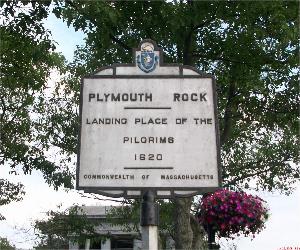
~ by Steven H. Ware Bailey, M.Div.
The Congregational Christian Way of Life
~ by Phil R. Jackson, M.Div.
The Biblical Basis of Congregationalism
~ by Harry R. Butman D.D.
New Testament Tests for Congragationalism
~ by Henry David Gray, Ph.D
The Meaning of the Meeting House
~ by Arthur A. Rouner Jr., D. Min.
~ by Howard J. Conn, D.D.
The Fellowship of Connecticut Congregational Christian Churches
http://ctfellowship.com/Home/tabid/2171/Default.aspx
We are a regional association of churches that includes evangelicals and free-thinkers, traditionalists and progressives. Our churches are old (1670) and new (2001), formal and informal. We include Native Americans, old-line Yankees and first generation immigrants.
We have 43 member congregations. They are located in Connecticut, Massachusetts, New Jersey, New York and Rhode Island.
All but one of our member churches also are members of the NATIONAL ASSOCIATION OF CONGREGATIONAL CHRISTIAN CHURCHES.
Our member congregations hold that each local church is a gathered company of believers free to determine its own covenant, basis of membership, statement of faith (if any), forms of worship, programs of religious education, ownership and administration of property, choice of minister or other leadership, programs of community service, fellowship, music, pastoral work, and all other religious and civic activities.
Each church names its own voting representative to be on our Executive Committee/Board of Trustees, according to its own procedures and timetable. This Executive/Board meets 6 times a year (January - March - April - June - September - November). These meetings are held at South Congregational Church, Hartford, CT, on the 2nd Thursday of the month, from 4:00PM to 5:30PM.
The standing committees of the Fellowship are:
Church Assistance and Development
Budget and Investments
Fishers Island
Missions
Nominating
Pastoral Relations
Personnel
Religious Education
Youth
General meetings are held twice a year. Our Annual Meeting is typically held the afternoon of the third Sunday in May. Our Fall Fellowship meeting is held the third weekend in October. Locations change with each meeting.
Fellowship operations are staffed by an Administrative Assistant, (Mrs.) Linda Johnson, and an Executive Secretary, Barbara Erlendson.
Our e-mail address is connfell@sbcglobal.net
Our telephone is (860) 527-7001
Our office is in the facility of the South Congregational Church
277 Main St., Hartford, CT 06106.
Usual office hours are 9:00 am to 3:00 pm, Monday - Thursday.
National Association of Congregational Christian Churches http://www.naccc.org/
The National Association of Congregational Christian Churches (NACCC) is a voluntary association of churches committed to fellowship with each other. It is designed to allow local congregations to consult and advise together as churches upon matters of common concern to them, both temporal and spiritual, without infringing on their self-government. The NACCC also maintains cordial relationships with a number of autonomous state and regional Congregational associations. Congregational Once a year, normally in June, representatives of NACCC member churches gather for a four-day Annual Meeting held in a different city each year. Attendees experience the joy of fellowship, take part in valuable seminars, hear dynamic and inspiring speakers, and make the major decisions of the Association during business sessions. The activities of the NACCC are conducted and supported by its Executive Committee and a number of other committees, divisions and commissions, as well as professional staff. The Association's national office is in |
International Congregational Fellowship http://intercong.org/
The International Congregational Fellowship is a vibrant global expression of a multiplicity of local Congregational churches and associational bodies across the world. For Congregationalists, how our churches are organised and run have to reflect the principles and values that Jesus taught, and the pattern we find for church life and Christian leadership in the Bible.
Congregational churches do not exist in isolation but have traditionally formed free associations or networks. ICF provides a global identity and a valuable opportunity for Congregationalists from all over the world to enjoy fellowship with one another.
The Fellowship Of Connecticut Congregational Christian Churches
http://www.connecticutfellowship.org/
Congregational Christians in CT, MA, RI, NJ, NY Joining in Fellowship
"We are a regional association of churches that includes evangelicals and free-thinkers, traditionalists and progressives. Our churches are old (1670) and new (2001), formal and informal. We include Native Americans, old-line Yankees and first generation immigrants."
The National Association Of Congregational Chrisitan Churches
http://www.naccc.org/index.htm
"Bringing together Congregational Christian Churches for mutual care and outreach to our world in the name of Jesus Christ."
WEBSITES OF INTEREST
VISIT OUR HISTORY -- PLYMOUTH,MA - TAKE A TOUR http://www.pilmoth.org/
THE PLYMOUTH COLONY ARCHIVE PROJECT http://etext.virginia.edu/users/deetz/
WOMEN ON THE MAYFLOWER http://members.aol.com/calebj/women.html
CONGREGATIONAL CHRISTIAN WOMEN
GREETINGS!!
I am so glad that you have turned into our webpage!! This site was begun as a way for the women within The Connecticut Fellowship of Congregational Christian Churches to stay in touch with one another, to share information with one another, to get to know one another better, and to have a convienient way to access event information that takes place within the association of churches both locally and nationally.
I AM LOOKING FOR INFORMATION FROM YOU!!! As you know, our group is formed within our Fellowship -- we elect a President -- and we organize our group. With the hectic lifestyles we are all living, there is little chance for us all to get together for events. I pray, however, that we will EACH join, add to, and participate in this website as often as we can!! Perhaps you might consider serving in this group in a special capacity?
We need -- TOGETHER -- to work on making our group active once again so that we can make a spiritual difference in the lives of the women we serve in the CT Fellowship. Since I have become President of our group, I have heard many say that, though their lives are busy, they really need the fellowship of other women in their faith walk. What better women to take a faith walk with than those in our own Fellowship?
I hope we can start with this site -- and then go on once again to being able to gather for special events, retreats, and faith projects. I am available to counsel, teach, preach, or run special events such as retreats. I know that there are other women within our Fellowship who are willing and able to do the same thing for us. LET US USE ONE ANOTHER'S GIFTS THAT THE LORD HAS SO GRACIOUSLY GIVEN US TO GET TO KNOW HIM BETTER!!! Let us be a strong Sisterhood of Congregational Christian women for the Lord!!!
WITH LOVE, Pastor Lin
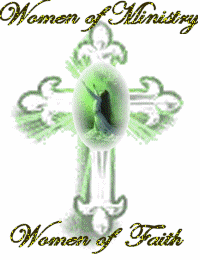
ORIGINAL MAYFLOWER WOMEN
WOMEN ON THE MAYFLOWER http://members.aol.com/calebj/women.html
The International Congregational Fellowship
"The International Congregational Fellowship unites Christians around the world. We have much to share: a wealth of language and culture; wide experience of Christian service; amazing stories of God's blessing."
CONGREGATIONAL FEDERATION http://www.congregational.org.uk/
UNION OF WELCH INDEPENDANTS http://www.annibynwyr.org/aboutus/index.html
INTERNATIONAL CONGREGATIONAL FELLOWSHIP http://www.intercong.org/
SPECIAL CONGREGATIONAL PUBLICATIONS
INTERNATIONAL CONGREGATIONAL JOURNAL http://www.intercong.org/icj.htm
THE CONGREGATIONALIST http://www.congregationalist.org/
Hymns for a Pilgrim People: A Congregational Hymnal
Pastor Lin was a member of the Hymnal Committee that worked several years to compile the new hymnal for our NACCC churches. The hymnal, "Hymns for a Pilgrim People: A Congregational Hymnal", was first presented to our churches at the National Annual Meeting in St. Petersburg, FL in the summer of 2007.
A review of the Committee's work can be seen at the following link: http://www.naccc.org/Hymnal/New_Hymnal_Committee.htm
To order: Call GIA at 1-800-442-1358 and ask for
Item # G-7200 or go to
http://www.giamusic.com/products/P-7200.cfm
I watched intently as my little brother was caught in the act. He sat in the corner of the living room, a pen in one hand and my father's hymnbook in the other. As my father walked into the room, my brother cowered slightly; he sensed that he had done something wrong. From a distance, I saw that he had opened my father's brand-new book and scribbled across the length and breadth of the entire first page with a pen. Now, staring at my father fearfully, he and I both waited for his punishment.
My father picked up his prized hymnal, looked at it carefully, and then sat down without saying a word. Books were precious to him; he was a clergyman and the holder of several degrees. For him, books were knowledge, and yet, he loved his children. What he did in the next few minutes was remarkable. Instead of punishing my brother, instead of scolding or yelling or reprimanding, he sat down, took the pen from my brother's hand and then wrote in the book himself, alongside the scribbles John had made: "John's word 1959, age two. How many times have I looked into your beautiful face and into your warm, alert eyes looking up at me and thanked God for the one who has now scribbled in my new hymnal? You have made the book sacred as have your brothers and sister to so much of my life." Wow, I thought. This is punishment?
From time to time I take a book down - not just a cheesy paperback but a real book that I know I will have for many years to come - and I give it to one of my children to scribble or write their names in. And as I look at their artwork, I think about my father, and how he taught me about what really matters in life: people, not objects; tolerance, not judgment; love which is at the very heart of a family. I think about these things, and I smile. And I whisper, "Thank you, Dad."

National Association of Congregational Christian Churches
NEW HYMNAL COMMITTEE
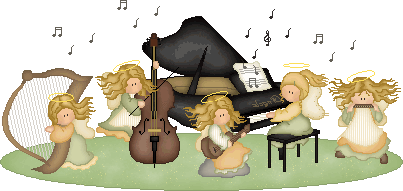
SEE OUR WORK HERE:
http://www.naccc.org/Hymnal/New_Hymnal_Committee.htm

WE NEED YOU!!!

PLEASE: PRAY with and for us as we work together on this ministry project!!
PLEASE: PARTICIPATE with us as fully as you can in this ministry project!!
PLEASE: PAY what the Lord leads you to give towards this ministry project!!!
Our committee is working hard out of the love we have in our hearts for the Lord, music, and YOU!!! But, we cannot complete this ministry project without your help!! PRAYER is certainly one of the greatest gifts the Lord has given us; won't you be in prayer about this project with us? PARTICIPATION is strongly needed; we cannot publish a hymnal that contains your musical faith startments without your telling us what they are!! PAY is an important word within this project for those who what it to succeed; we are not funded by anyone or any group, we are relying totally on the financial blessings of your heart!!!
REMEMBER![]() PRAY, PARTICIPATE, and PAY = the only way that this ministry will reach completion = WE NEED YOU!!!
PRAY, PARTICIPATE, and PAY = the only way that this ministry will reach completion = WE NEED YOU!!!
+++++++++++++++++++++++++++++

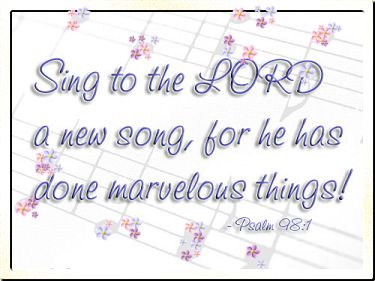
Web Page: CONGREGATIONALISM At: 'Women of Ministry / Women of Faith' INTERNATIIOAL
|

Rev. Lin McGee Pastor.Lin.McGee@gmail.com
111 Marshall St. Winsted, CT 06098 Phone 860-379-1298
Please visit me on my other websites:
Precious Stars www.PreciousStars.com
Faith and Life Ministries www.FaithandLifeMinistriesInternational.com
On the websites of those I am affiliated with:
Patriot Guard Riders www.PatriotGuard.org
Connecticut Patriot Guard Riders www.ctpatriotguard.org
Missing In America Project www.MIAP.us
VA Voluntary Service http://www.volunteer.va.gov/
Military Ministry http://www.militaryministry.org/
Christian Military Fellowship http://cmf.com/
Post #296 VFW Ladies Auxiliary www.vfwpost296ladiesaux.com
Marine Corps League Auxiliary http://mcldeptct.org/pages/mcl_ct_auxiliary.html
American Soldier Memorial Project http://groups.yahoo.com/group/AmericanSoldierMemorial
No Soldier Left Behind Memorial http://groups.yahoo.com/group/NoSoldierLeftBehindMemorial/
JESUS My Lord and Savior Church www.JesusMyLordandSaviorChurch.com
Men Walking With God www.MenWalkingWithGod.com/
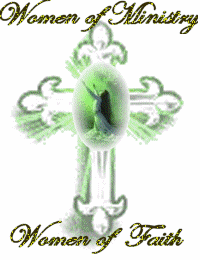
Copyright © 2000 All Rights Reserved To The Present Date

